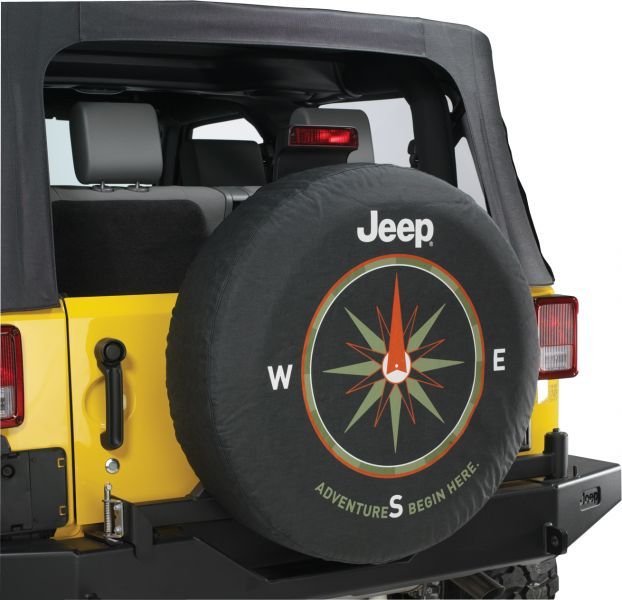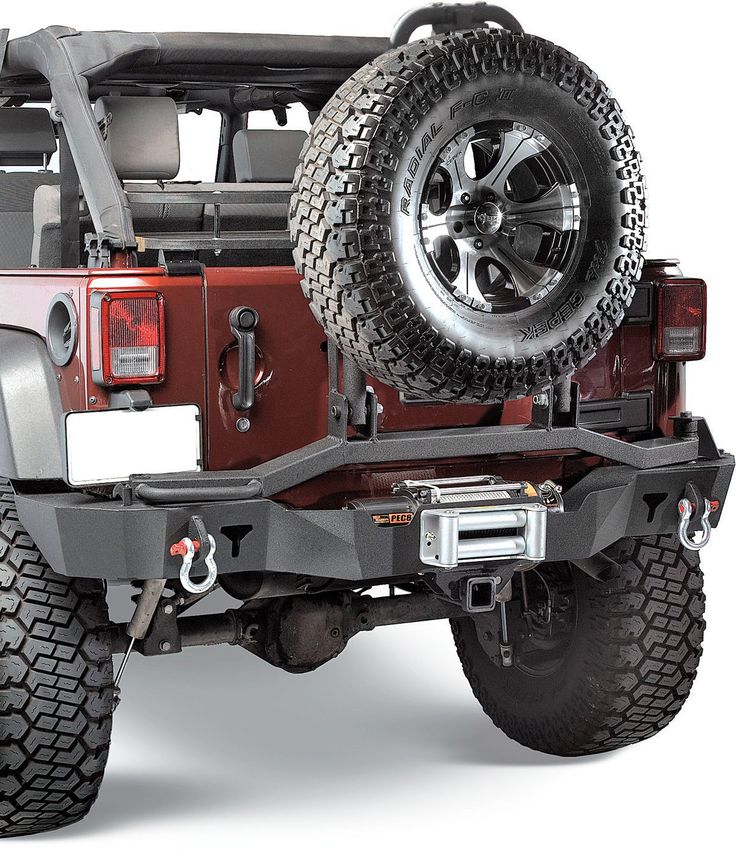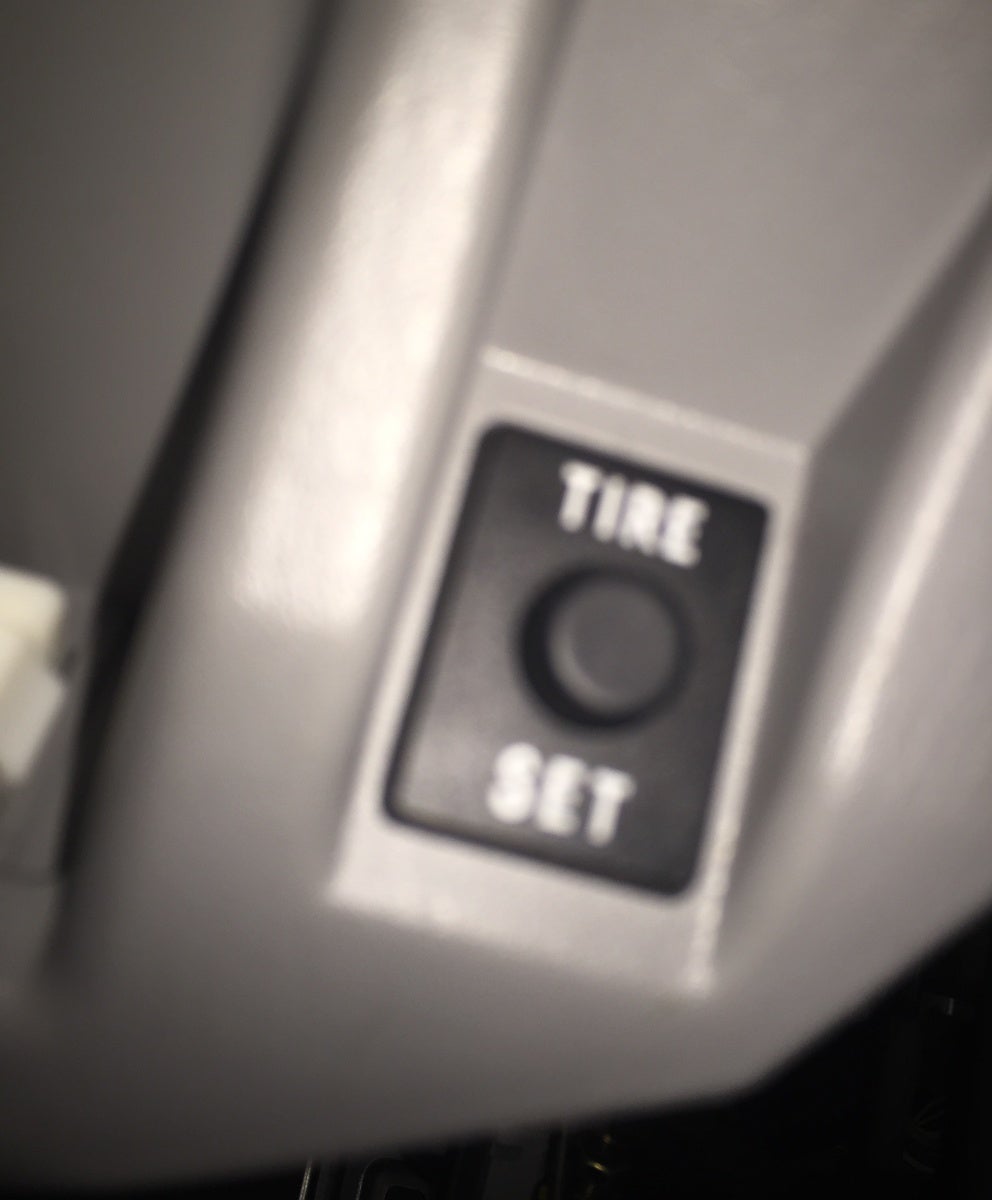Jeep Wrangler is equipped with a Tire Pressure Monitoring System (TPMS) that uses sensors to monitor the air pressure in your tires.
If the pressure in one or more tires is too low, the TPMS will warn you so that you can inflate them to the proper pressure. You may be wondering where the TPMS reset button is on your Jeep Wrangler.
There is no reset button on the Jeep Wrangler. The system is designed to automatically reset itself when you add air to your tires or if you replace a tire with a new one. To reset the system, inflate the tires to the correct pressure, and drive the vehicle for 10 to 15 minutes.
If your Jeep Wrangler is equipped with aftermarket tires or wheels, the TPMS sensors may need to be replaced or re-calibrated. You can take it to a Jeep dealership or a tire shop to have this done.
As we already know, the Jeep Wrangler is equipped with a Tire Pressure Monitoring System. This system uses sensors to monitor the air pressure in your tires and will warn you if one or more of them are low.
The system is automated and designed to reset itself when you add air to your tires or replace a tire with a new one. This means the TPMS in the Jeep Wrangler does not have a reset button.
The TPMS sensors may need to be replaced or re-calibrated if your Jeep Wrangler is for several reasons. You can take it to a Jeep dealership or a tire shop to have this done.
Here are some reasons you might need to get your TPMS sensors calibrated:
A TPMS relearn tool is a device that is used to recalibrate the TPMS sensors. This is necessary if you have replaced your Jeep Wrangler’s tires or wheels with aftermarket ones.
It is this tool that enables the Jeep Wrangler TPMS to work without a reset button. The relearn tool is connected to the Jeep Wrangler’s OBD-II port and is used to program the new tire pressure sensor IDs into the vehicle’s computer.
Once this is done, the TPMS system will be able to accurately monitor the air pressure in all of your tires.
Even though the Jeep Wrangler has no button to press for resetting the TPMS, there is a way that you can do it yourself.
Here are the steps:

Alternatively, if you are not a do-it-yourself person you can take it to a Jeep dealership or a tire shop to have this done for you. You can get your TPMS sensors calibrated while you are there.
Since the Jeep Wrangler does not have a reset button, you will need to use a TPMS relearn tool to recalibrate the sensors. This tool is used to program the new tire pressure sensor IDs into the vehicle’s computer.
Here are the steps:

Yes, you can reset the TPMS by disconnecting the battery. However, you will need to drive your Jeep Wrangler for about 20 miles at speeds above 50 mph for the system to automatically reset.
Keep in mind that the TPMS will only reset if the sensors detect that the pressure in all of your tires is at the proper level.
The TPMS in the Jeep Wrangler is designed to automatically activate when you start the engine. You do not need to do anything to activate it.
If you don’t reset the TPMS, it will continue to give you false alerts. This can be very annoying and may even cause you to miss a low-tire pressure warning. Further, if the TPMS is not working properly, it could lead to dangerous driving conditions.
It is always best to reset the TPMS after you have made any changes to your Jeep Wrangler’s tires or wheels. This will ensure that the system is working properly and that you are getting accurate readings.
This will ensure that the system is working properly and that you are getting accurate readings.
The TPMS in your Jeep Wrangler may not be working for several reasons. It could be because you need to get your sensors calibrated or replaced. Alternatively, it could be a problem with the system itself.
If you are experiencing problems with your TPMS, the best course of action is to take it to a Jeep dealership or a tire shop. They will be able to diagnose the problem and get it fixed for you.
The answer to this question is no. You cannot do a Jeep Wrangler TPMS reset without a tool. The relearn tool is necessary for programming the new tire pressure sensor IDs into the vehicle’s computer.
Without this tool, the TPMS system will not be able to accurately monitor the air pressure in your tires.
You should do a TPMS reset whenever you make any changes to your Jeep Wrangler’s tires or wheels. This includes adding new tires, changing tire sizes, or even just rotating your tires.
This includes adding new tires, changing tire sizes, or even just rotating your tires.
Doing a TPMS reset after making any of these changes will ensure that the system is working properly and that you are getting accurate readings.
Sometimes you might find that your TPMS light is on but your tires are fine. This can be caused by several factors, including:
The cost of relearning TPMS will vary depending on the make and model of your Jeep Wrangler. However, it should not be more than $100.
The Jeep Wrangler does not have a physical TPMS reset button. The system is designed to automatically reset when you start the engine. However, if you need to do a manual reset, you will need to use a relearn tool.
You can use this tool to program new tire pressure sensor IDs into the vehicle’s computer. You can also reset the TPMS without a tool by simply ensuring all tires are properly inflated and driving your Jeep Wrangler for about 20 miles at speeds above 50 mph.
Doing a TPMS reset after making any changes to your Jeep Wrangler’s tires or wheels is always the best practice. It will ensure that the system is working properly and that you are getting accurate readings.
If you experience any problems with your TPMS, take it to a Jeep dealership or a tire shop. They will be able to diagnose the problem and get it fixed for you.
Here are other Jeep Wrangler reads that you may find helpful:
Jeep Wrangler Water Leak When It Rains (How to Fix)
8 Best Halo Lights for Jeep Wrangler in 2022
How To Reset The Jeep Wrangler Oil Change Maintenance Light
If a flashing tire pressure light has you distracted while driving around Green Bay or if your tire pressure monitoring system (or TPMS) light is permanently on even after refilling your tires with air, let the experts here at Vande Hey Brantmeier guide you through the process of how to reset your tire pressure light! Want us to take care of it for you? Not a problem! Bring your vehicle to our Chrysler, Dodge, Jeep, Ram service center in Chilton any time!
Schedule Service
Contact Us
In most cases, your TMPS light should turn off after you're inflated your tires with the proper amount of air (usually recommended PSI inflation figures are found in your vehicle's owner's manual. Recommended PSI ranges are also often found on your tire's sidewall. If in doubt, go with the owner's manual recommendations. If your TPMS light remains on, there are a couple of options you can take to rectify the situation and turn it off:
Recommended PSI ranges are also often found on your tire's sidewall. If in doubt, go with the owner's manual recommendations. If your TPMS light remains on, there are a couple of options you can take to rectify the situation and turn it off:

Sometimes, tire pressure monitoring sensors have a battery that requires periodic replacement. If and when this battery begins to get old enough, it could trigger the light to flash. Sometimes, a flashing tire pressure light is also indicative of an issue with one or more TPMS sensors. Either way, if you find that your TPMS light flashes, it's best to schedule service at Vande Hey Brantmeier near Appleton today!
Whether the above steps have failed to help you reset your tire pressure light, or whether you'd just like a professional mechanic to look over your car for fear of messing up expensive sensors or electrical equipment, if you need additional assistance, we're happy to provide it here at the Vande Hey Brantmeier service center near Manitowoc. Our expert Chrysler, Dodge, Jeep, Ram service technicians have the know-how needed to fix your TPMS issues and reset a TPMS light that's on or flashing. They can also provide you information about your vehicle's maintenance schedule. Contact us today to schedule service or with additional service-related questions!
Our expert Chrysler, Dodge, Jeep, Ram service technicians have the know-how needed to fix your TPMS issues and reset a TPMS light that's on or flashing. They can also provide you information about your vehicle's maintenance schedule. Contact us today to schedule service or with additional service-related questions!
| DIY
| |||
Jeep Wrangler - Video Lesson Model: Jeep Wrangler MK 4, JL - Years 2018-2022 When the tire pressure warning light comes on on the Jeep Wrangler instrument panel, it means that at least one of the four tires is under-inflated. To reset the warning light, a flat tire must be detected and the correct inflation pressure restored. This is written on a sticker affixed to the driver's door pillar or in the operation and maintenance booklet. After inflating the tire, it is necessary to drive a few meters, as indicated in the video. As you continue, the system will be able to read the new tire pressure, allowing the warning light to turn off. Posted on 19 October 2021 | How to remove the heating radiator on the Mini CooperLet's see how to remove the heating radiator on the Mini Cooper. First of all: remove the plastic lining of the central tunnel (located under the central tunnel on the left). We unscrew the tightening screws with a screwdriver, remove the black plastic cover that covers the heating radiator. After all the described operations have been carried out, we proceed to intervene in the engine compartment: we disassemble the plastic cover of the engine and disconnect the two pipes (unscrew the clamps, if any) of the radiator, which goes from there to the passenger compartment. drain the liquid. Disconnect the radiator from the pipes in the cabin. We go through all the assembly steps in reverse order. Watch the video! by ScegliAuto more videos
|
| DIY
| |||
Jeep Wrangler - Video Lesson Model: Jeep Wrangler JK, MK 3 - Years 2007-2018 Before we can get started, we need to get behind the wheel of our Jeep Wrangler. So, let's start by adjusting the tire pressure in accordance with the recommended pressure values \u200b\u200bspecified in the instructions using a compressor. After that, we will have to return to the vehicle and then turn it on. Posted on 6 January 2022 | How to remove the heating radiator on the Mini Cooper Let's see how to remove the heating radiator on the Mini Cooper. First of all: remove the plastic lining of the central tunnel (located under the central tunnel on the left). We unscrew the tightening screws with a screwdriver, remove the black plastic cover that covers the heating radiator. After all the described operations have been carried out, we proceed to intervene in the engine compartment: we disassemble the plastic cover of the engine and disconnect the two pipes (unscrew the clamps, if any) of the radiator, which goes from there to the passenger compartment. |